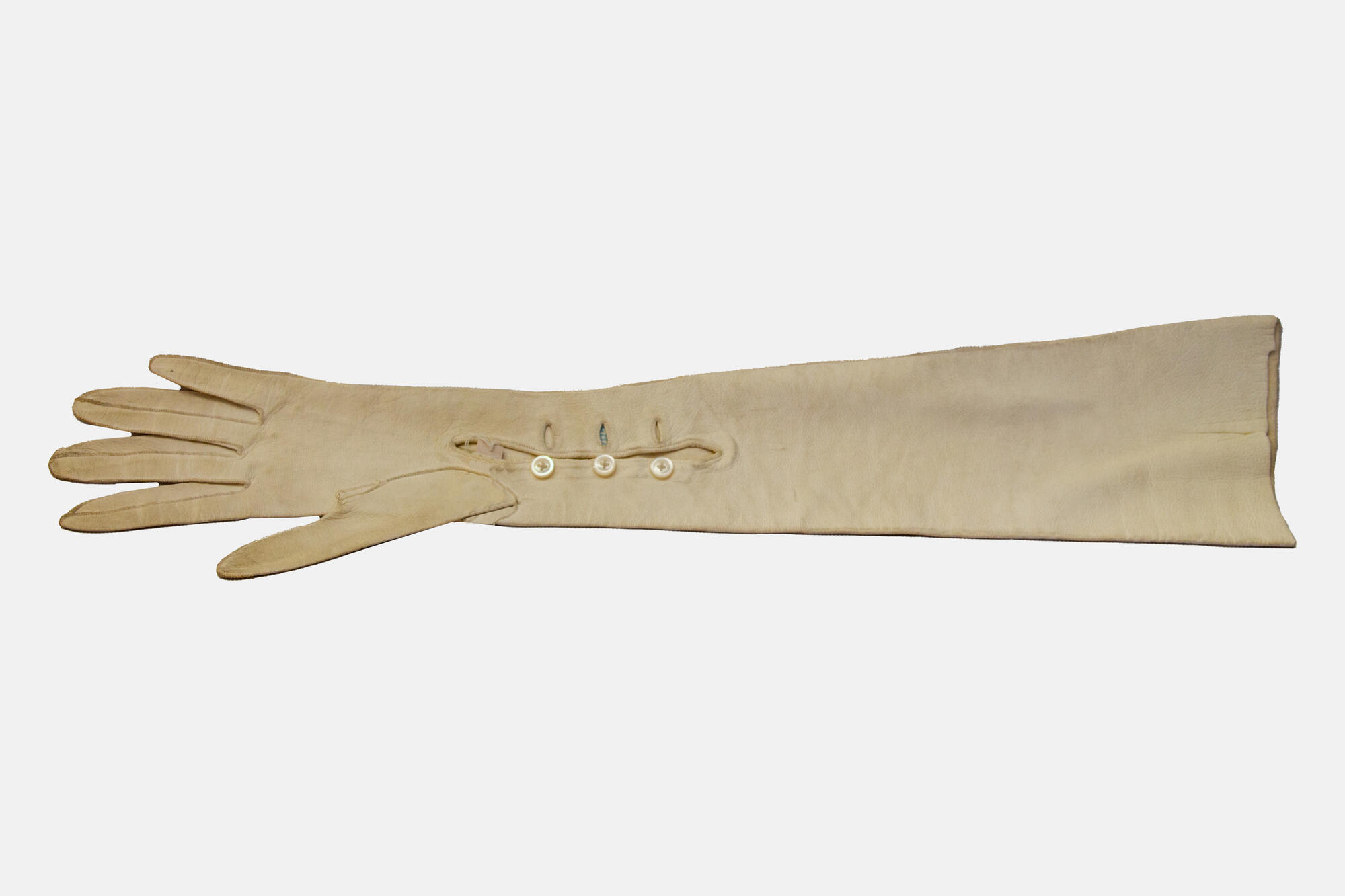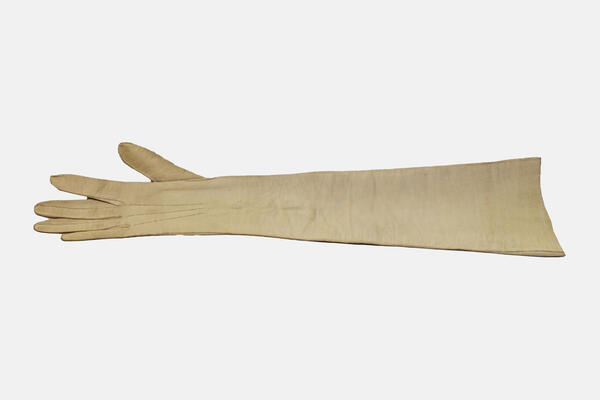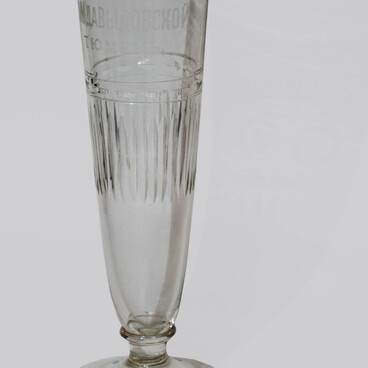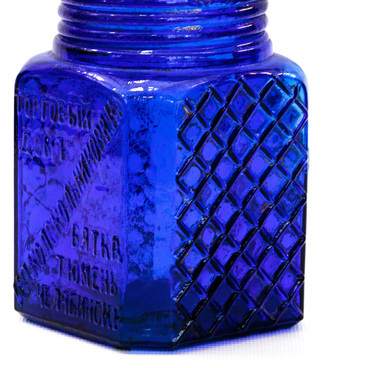Long evening gloves buttoned at the wrist were in fashion in the late 19th — early 20th century. Ladies wore them with short-sleeve dresses, mainly for balls, theater, musical and opera performances. Hence, long gloves are also called theater or opera gloves. They were made mainly of kid leather — soft thin white leather tanned with aluminum salts, that is, tawed leather. This type of leather came to Russia from Poland, and therefore its Russian name (layka) comes from the Polish word łoj — “tallow”. If gloves featured the mark Chevreau, it meant that the pair was made of goatskin. Skins of sheep and even dogs could also be used for making kid leather.
Such kidskin gloves were produced at the Boucicaut company and sold at the Le Bon Marché company store. In the 19th century, this store was a trendsetter and a pioneer of new selling techniques. Aristide Boucicaut was the son of a hatter, worked for many years in various studios and clothing stores, until he founded the haberdashery store Le Bon Marché in 1838 in Paris at the corner of Sèvres and du Bac streets. Together with partners, Boucicaut developed new selling techniques. For instance, he offered fixed prices indicated directly on the label (prior to that, it was customary to bargain in the haberdashery), direct access to the product, a returns policy, presentation of the product in the sales hall, and mail order catalogs.
Aristide Boucicaut and his wife Marguerite Guérin were looking for new ideas to grow their business, which led them to the idea of creating a department store that would become a place where everything would stimulate consumption. The department store was supposed to be a place organized in an almost theatrical way to augment the desire to buy something, where sellers or saleswomen would be trained to advise the buyer, a place where sales and seasonal discounts would appear. Aristide Boucicaut died in 1877, his only son Aristide survived him by only two years, and Marguerite died in 1887. As there were no heirs, the funds from the sale of Boucicaut’s business went to charity.



